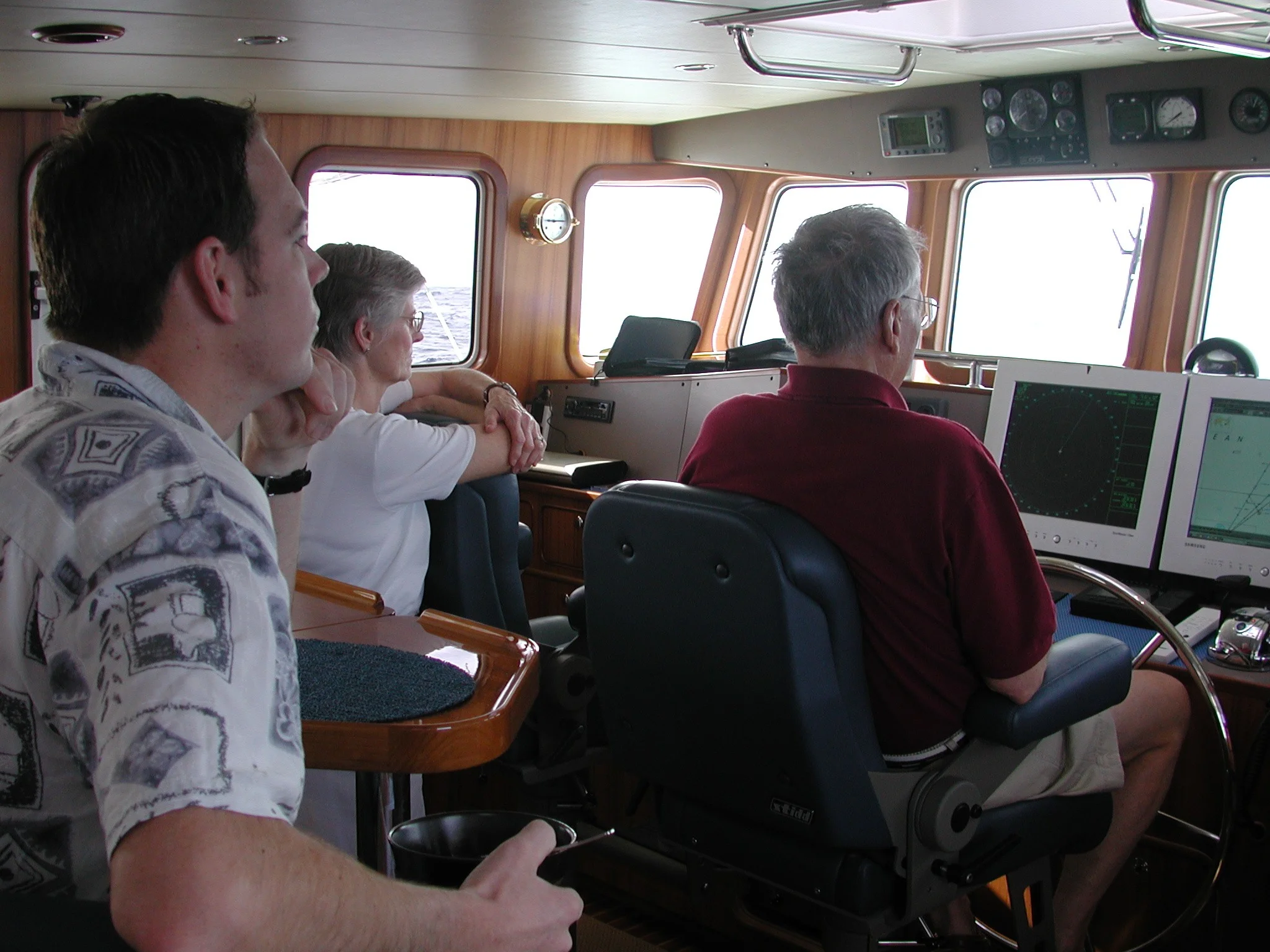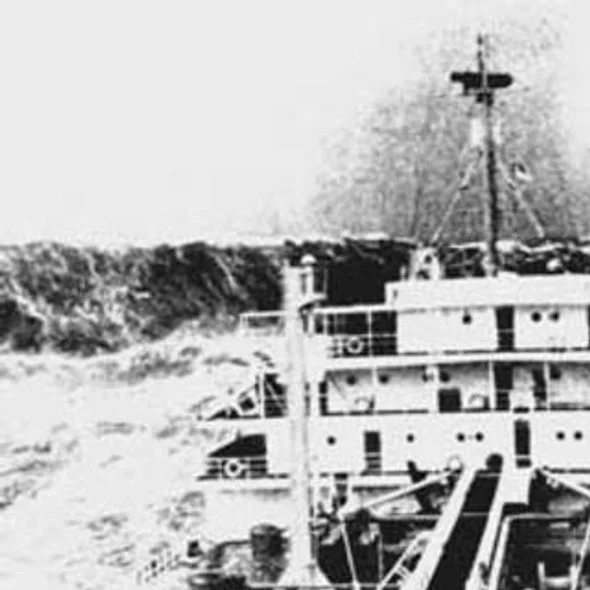I was on a boat the other day, and the owner showed off some of the electronic updates he had done over the winter. One of the upgrades was a new chartplotter. This technology is really getting incredible in its features and detail. As long as the charts are accurate, one can really depend on this technology to stay safe.
This owner reminded me of some scary trips I've been on.
I crossed the Gulf Stream one year from Ft. Lauderdale with a great guy, Dennis Lawrence, who now runs the Kadey-Krogen office in Seattle. We crewed for the owner of a new boat, and the owner was fascinated by all of his new electronics, and how to integrate them. But his enthusiasm for these electronic tools caused a major problem for Dennis and me. The guy hardly ever looked out the pilothouse window, instead fixated on the chartplotter at the helm. Hour after hour, and no amount of prodding by either of us could change the mindset of this man. As we closed on the Bahamas, ready to round Hole in the Wall, it seemed this could become dangerous. The charts for these waters are pretty good, but still, safe navigation assumes you also make physical observations of your surroundings. Sticks may mark certain areas of shoals or other hazards, placed by local knowledge.
Later, when we reached Hope Town, I arranged to shoot photos of a sweet lady from a motoryacht we met. I imagined her standing on the bow of our Nordhavn, waving and having fun. Back in Annapolis, reviewing the images, I noticed in several possible cover photos, I could clearly make out the owner in the pictures, staring at his screen, with me in a dinghy only yards in from of him trying to get the right angle for the shoot. If our outboard even sputtered, he would run over top of me in seconds. It was nuts.
On another trip, I helped bring a cruising boat down the Hudson to New York City. The owner was so mesmerized by his new Garmin plotter he rarely looked up or out to see the water or shoreline while running along at 12 knots. As captain of his boat, I reminded him, it was his responsibility to keep his vessel safe, yet he seemed to think I should do it for him. If you have ever been on the Hudson River approaching New York City, it is not for the faint of heart, as ships, ferries, tugs, barges, and pleasure boats crisscross the entire area. I watched him for three full minutes, with an eye on my watch, and not once did he look up. We had a bit of a row over his complete lack of situational awareness. He didn't want to be lectured.
It was a great relief to step off that boat once we got to the city and his wife swapped places with me. I gave him the most bogus smile of my life as I thanked him for having a good time. Why did I accept such invitations!?!
As good as GPS can be, it isn’t artificial intelligence, nor does it guarantee a safe passage. It can't see what else is around you. A person is required, with eyes and ears, to use the GPS, along with visual and other information. We are nowhere close to having autonomous boating, and I doubt that will ever happen at the recreational level. Elon Muck has his sights on other planets...not boating.
It is safe to rely completely on your GPS plotter in certain situations, but not all the time. If the GPS fails (probably a loose connection in my experience), have a backup or two or three. And if what you think you see out the window doesn’t agree with what you see on the plotter screen, STOP immediately and figure it out.
Pay attention and keep your eyes looking out around you. That is the best insurance for safe cruising.
Have a great week.









